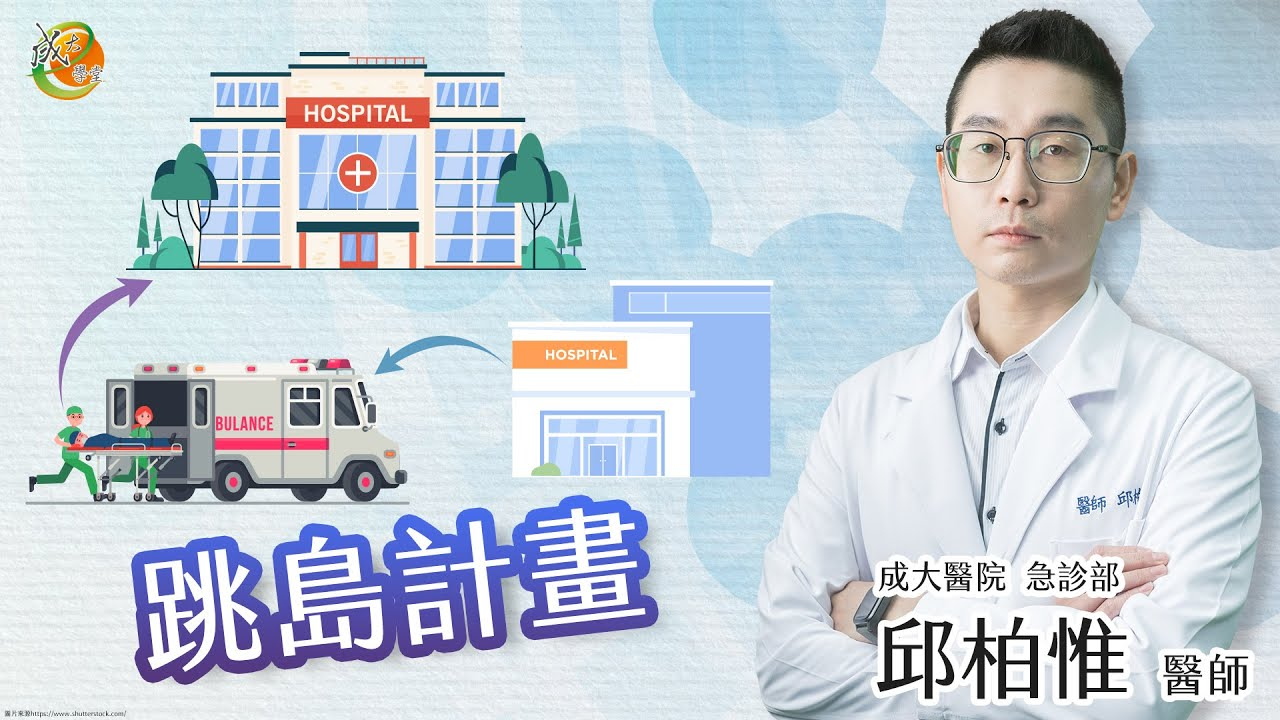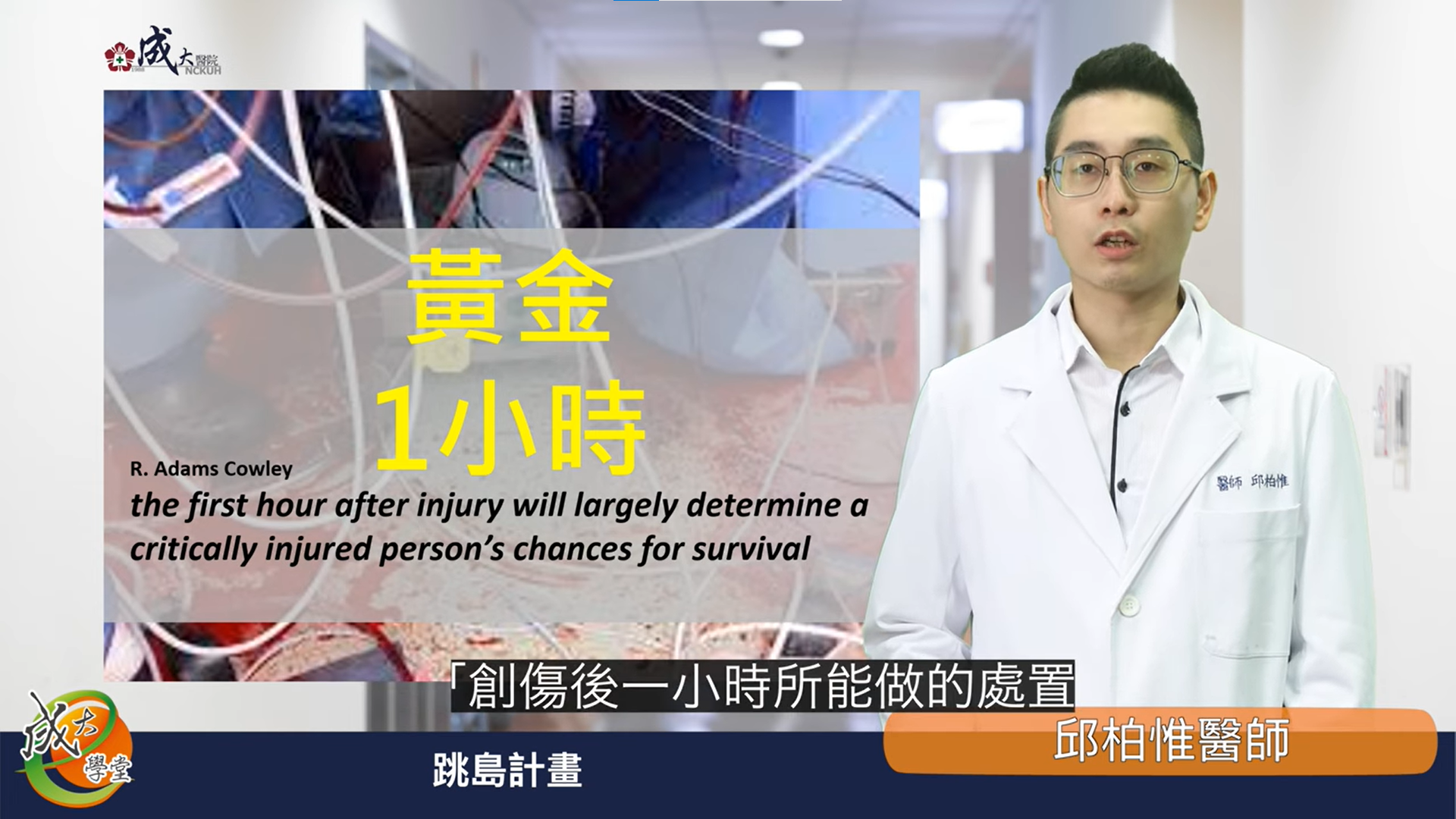National Cheng Kung University Hospital Emergency Department “Island Hopping Strategy”-Buying time for emergency treatment and not giving up every ounce of hope
Po-Wei Chiu, MD, Attending Physician, Dept. of Emergency Medicine
Major trauma is the leading cause of death in able-bodied Taiwanese people aged <40 years. Every year, 7000 families are no longer complete due to major trauma. The time-consuming transportation process has always been a weakness in pre-hospital emergency treatment in remote mountainous areas.
In order to solve the problem, the emergency department of National Cheng Kung University Hospital proposed an innovative pre-hospital transportation plan in June 2020 “Special Patient Island Hopping Strategy” to act as a bridge connecting pre-hospital first aid and post-hospital treatment. This plan is a collaboration with Tainan City Government Fire Bureau and Ministry of Health and Welfare Tainan Hospital Xinhua Branch so that special major trauma patients in remote mountainous regions in Tainan (5 districts in eastern Tainan, Xinhua, Zuozhen, Yujing, Nanxi, and Nanhua) can undergo preliminary assessment by an emergency physician within 30 minutes of injury and vital signs can be stabilized. In the subsequent 30 minutes, the patients will be safely transported to a medical center and receive appropriate treatment, so as to achieve the golden hour for resuscitation and not giving up on every ounce of hope.
This plan uses the characteristic of Xinhua Branch as a hub and emergency physicians from National Cheng Kung University Hospital are stationed in this hospital to achieve a connection between emergency treatment and pre-hospital first aid. Ambulances from the fire bureau will then transport the patient to National Cheng Kung University Hospital and buy time for transfer in the hospital. When the island hopping plan was implemented from July to October 2022, 55 major trauma patients were transferred from remote clinics in eastern Tainan to National Cheng Kung University Hospital for subsequent treatment. Among time, 43 survived to leave the emergency department and underwent subsequent surgery or intensive care unit care. The emergency department survival rate was 78%.

Figure 1. Island hopping plan-improving the referral quality of remote regions

Figure 2. Golden hour for saving lives, not giving up every ounce of hope
